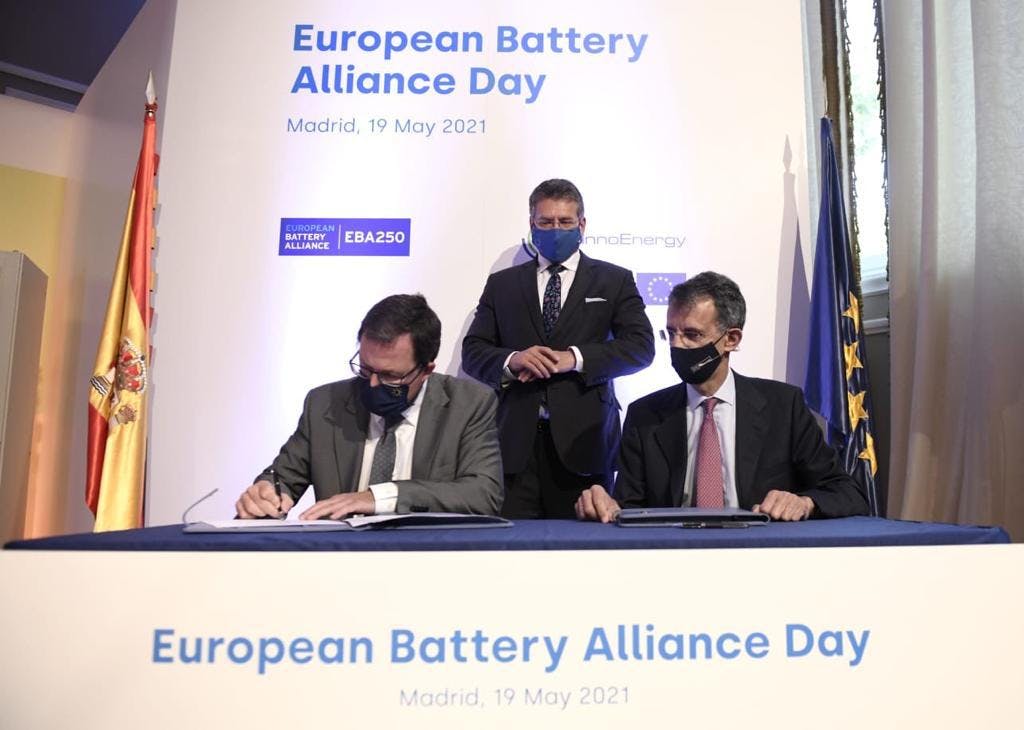EIT InnoEnergy shows the potential of the Spanish battery industry to the Vice-President of the European Commission

EIT InnoEnergy has presented this Wednesday some of the Spanish industrial projects in the value chain of electric batteries. Maroš Šefčovič, Vice-President for Institutional Relations and Foresight, European Commission, and leader of the European Battery Alliance (EBA) wanted to support these cutting-edge industrial projects with his visit to Madrid. Two agreements (MOUs) have also been signed that will contribute to boost the sector in Spain.
Watch the full streaming here.
Spain’s active role in EBA
Vice-President Šefčovič wanted to show his support for the sector in Spain in the framework of the European Battery Alliance and said: “I am proud of Spain’s active role in the European Battery Alliance. The industry is at the forefront and focused on creating innovative market-oriented projects and developing skills through partnerships. I would like to thank EIT InnoEnergy for its support in facilitating this”.
EBA250 Battery Academy
During the event, the Secretary General for Industry and Small and Medium Enterprises and President of the School of Industrial Organisation (EOI), Raül Blanco Díaz, and Diego Pavía, CEO of EIT InnoEnergy, signed an agreement that will make Spain the first European country to deploy the EBA250 Battery Academy, a training platform for all the jobs needed in the battery value chain. This platform already has more than 30 training courses, developed since 2018 in collaboration with leading European companies and organisations in the sector, and offers its services through local centres specialised in training workers.
The need for training
It is estimated that by 2025, around 800,000 workers at European level will need to be trained to be able to operate all the industrial projects (more than 70 already today) that are being deployed in Europe. The EBA250 Battery Academy Platform is the solution to this challenge of such volume and in such a short space of time.
MoU between Scoobic and Correos
The second collaboration agreement that has been closed during this day has been the one between Juan Manuel Serrano, president of Correos and José María Gómez, CEO of Scoobic. The state-owned company and the electric mobility start-up from Seville have signed an agreement for the research and development of sustainable and efficient last-mile logistics vehicles and solutions specifically designed for the business needs of companies such as Correos.
The agreement is part of the National Energy and Climate Plan, in which one of the main pillars is the reduction of emissions associated with mobility and freight transport, which represent approximately a quarter of total CO2 emissions in Spain. The plan foresees that from 2023 onwards, all cities with more than 50,000 inhabitants will have low-emission zones with limited access for the most polluting and emitting vehicles. All this is happening at the same time as online commerce is experiencing exponential growth, with estimates of annual growth rates of more than 20% between 2016 and 2024 globally, and which over the last year have been further accelerated by the effects of the pandemic on consumer behaviour.
Read the complete press release, here.

